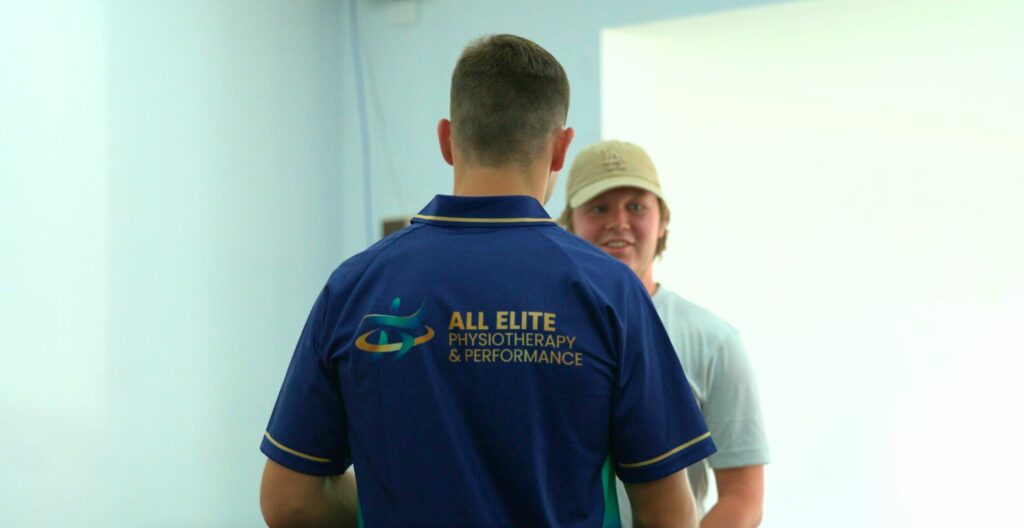Unleash the Power of Physiotherapy: A Guide to Your First Appointment
Physiotherapy is an integral part of modern health, encompassing a wide array of techniques aimed at improving strength, mobility, and the quality of life as a whole. Whether recovery from injury, decreasing chronic pain, or improving athletic performance, physiotherapy is going to try to provide what is needed in terms of support and guidance.
At All Elite Physiotherapy and Performance in Raymond Terrace, we understand your first visit can be quite daunting if you have never experienced physiotherapy before. This guide will help you understand what may take place during the first visit so you can be at ease and prepared.
What to Expect from Your First Appointment with a Physio
The first session in physiotherapy marks the beginning and is thus an important milestone in achieving your goals of health and recovery. This session is necessary for a clinical assessment of the condition, understanding the needs, and devising a rehabilitation treatment plan.
Once the treatment plan has been made specifically for you, an initial treatment of your condition will occur, which may involve exercises to help improve mobility or reduce pain.

Your Booking, Initial Consultation & Evaluation
How to Book Your Appointment
Booking your first physiotherapy session with us is quite straightforward and does not necessarily require a referral from your general practitioner or specialist doctor. We accept all private health companies and can swipe your card on premises to help save you the hassle. Nevertheless, in some situations you may get a Care Plan or EPC referral from your doctor. In this case you may be eligible for a rebated visit through Medicare.
You can book through our website. If you call or book online, our pleasant administrative team will guide you through this process. We shall seek some details regarding yourself as well as your present concerns. This gives us notice to prepare well for you and your purpose accordingly.
Initial Consultation
Your first session usually starts with an initial consultation to ascertain your health status and provide a baseline regarding your treatment. Your physio may conduct a thorough assessment that includes, but is not limited to, the following:
- Medical Review: Discussion of your medical history, previous injuries, previous surgeries, and current symptoms or pain you are experiencing.
- Symptom Discussion: Detailed questions about your symptoms, such as when they occur, their severity, and factors that reduce or exacerbate the pain.
- Physical Examination: An evaluation of your range of motion, strength tests, and palpation (feeling) of areas of your body that might ache. The examiner may ask you to reproduce specific movements or exercises that may cause your pain.

This extensive assessment thus provides the necessary basis for the establishment of a correct diagnosis, as well as effective and personalised treatment plan. In this manner, your physiotherapist will be able to find the root cause of your issues and establish a series of realistic, achievable goals in the line of recovery and improvement of your health.
The Importance of Setting Treatment Goals
One of the most important parts of your journey within physiotherapy is setting treatment goals. In this area, treatment goals provide direction and a roadmap for recovery, enabling you and your physiotherapist and yourself to measure your progress. Here's why setting goals is necessary:
- Focus and Direction: Goals give your treatment sessions a clear focus, thus making sure that each mobility, strength, or flexibility exercise and therapy are aligned with your desired outcomes.
- Motivation and Progress: You can show your progress, which in turn can help you stay motivated since specific and measurable goals are set. Reaching these goals means you will be improving in flexibility, strength, and other health aspects.
- Personal Attention: Treatment goals will be personalised for the individual needs of you, from simple pain relief and increased mobility to returning a previous level of athletic performance.
Goals may include things such as achieving a particular range of movement, to increase strength, or merely to reach a stage where you have pain-free movement. These objectives will help instill in your mind the proper treatment plan and create an individualised health and recovery goal.
By discussing these goals with your physiotherapist, you will be assured that your treatment plan falls in line with your personal health and recovery goals.
What to Wear and How to Prepare
It is a good idea to try and prepare for your physiotherapy session so you can take full advantage of it.
Here are some tips to do just that:
- Comfortable clothes: Wear loose, comfortable clothes that don't hinder your movement. Many times, athletic wear, like shorts and a tee or singlet, is just perfect.
- Medical Records: If you have any medical records, bring those along, or if you have a referral, that would be great also. This really can give good insight into your condition and history.
- Avoid Strenuous Activity: It is best to avoid strenuous exercises before coming into the office, since it will provide a more accurate picture of your assessment.
- List of Medications: Make a list to share with your physiotherapist in case you are on any medications; this may give insight into your health condition in general.

Coming prepared, you will ensure the session of physiotherapy is as effective and productive as it could get.
What to Expect During Your Appointment
Your first session typically involves assessment, discussion, and initial treatment in the case of physiotherapy. Here's an outline of what will normally take place:
- Duration: A regular session usually takes about 30 minutes, but this again depends on needs and the extent of one's condition and can be booked for a longer 1 hour session. If you this this would be best for you, please call us to book that extended session.
- Exercises: The treatment exercises your highly trained physiotherapist gets you involved with are aimed at enhancing movement and mobility, improving your strength, or decreasing your pain. The exercises are personalised, relating specifically to your condition and the objectives of treatment, focusing on areas that need strengthening or flexibility.
- Manual Therapy: This could include manual techniques such as massage or joint mobilisation, or even Dry Needling, whichever is appropriate, to enhance pain reduction and functional improvement.
Treatment will vary depending upon your specific needs and circumstances. If you would like to know more about rehabilitation exercises, you can visit our comprehensive guide about rehabilitation exercises for common sporting injuries.
Questions to Ask Your Physio
Take an active role in your physiotherapy session by asking questions to maximise your session. Here are a few of the questions you could ask:
- What are the expected treatment outcomes?
- How can I monitor my progress between sessions?
- Are there specific exercises that I can do at home?
- What should I avoid to prevent aggravating my condition

These questions help you not only understand your treatment plan but also enable you to be more active in your recovery process. Keep in mind your expert physiotherapist is here for you and to advise you along the way.
What Happens After Your First Session?
Once your first session is over, the physio will outline the next steps in your treatment plan; this will most likely mean that you go away with some exercises to do yourself at home and make follow-up appointments to progress your rehabilitation.
Here's what you might expect:
- Home Exercises: You will most likely go away with some exercises you can do yourself at home, which will support your recovery and improve flexibility and strength. These exercises are very important in maintaining momentum between sessions.
- Some Soreness: You may experience soreness after your session, especially if you are beginning new exercises. Your physiotherapist will however describe what soreness you may feel to make sure that you know what to fully expect. Usually post session soreness is very minimal and you will feel much better than walking into the session.
- Follow-Up Appointments: Scheduled follow-up appointments provide the opportunity to make appropriate changes in your treatment program and to assure that progress is maintained, and progressed efficiently for the fastest possible recovery and rehabilitation.
If pain or discomfort feels unusual at any time, it is always best to let your physiotherapist know. At All Elite Physiotherapy and Performance, we encourage you to give your physiotherapist a call or email with any questions you may have. They can advise and also alter their treatment plan if necessary to best suit your needs.
Book Your Appointment Today to Ignite Your Athletic Potential
The better prepared you are for this first visit, the more opportunity you may have to tap into this powerful treatment. From improved mobility and pain relief to enhanced athletic performance, physiotherapy offers a path toward better health and wellness.
Are you ready to take it one step further and begin your personalised rehabilitation to success?
Book your appointment today and let All Elite Physio help you achieve your goals in health and recovery.
